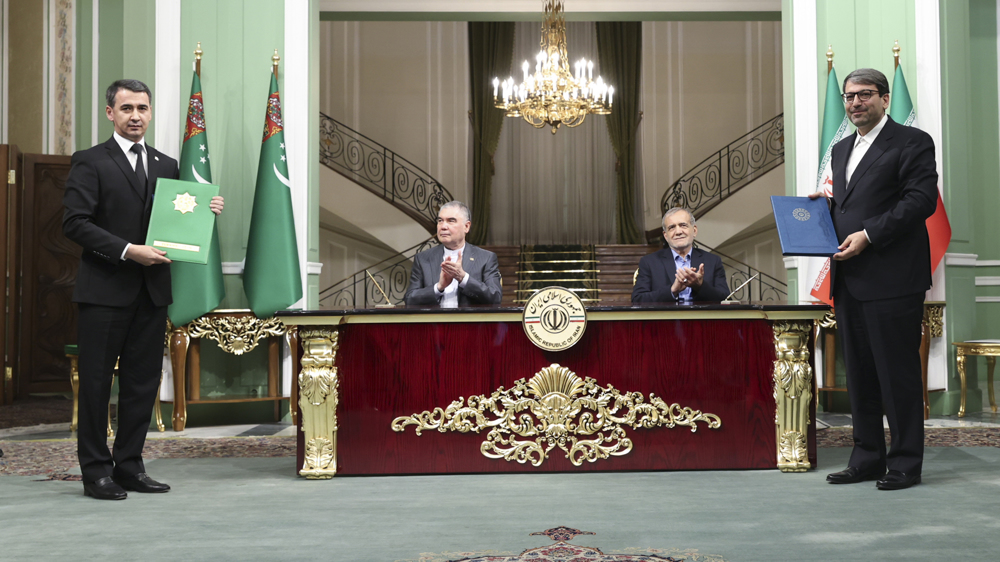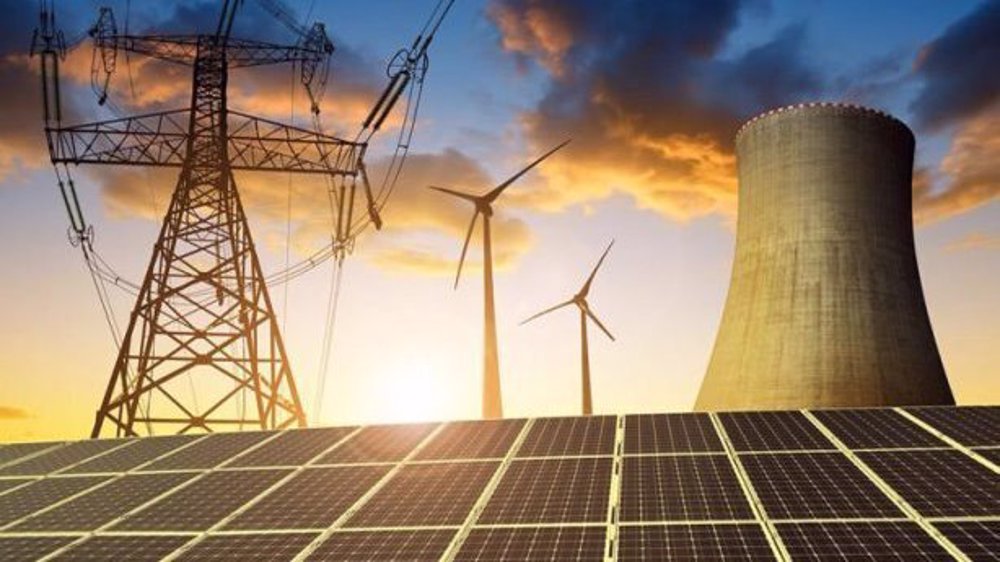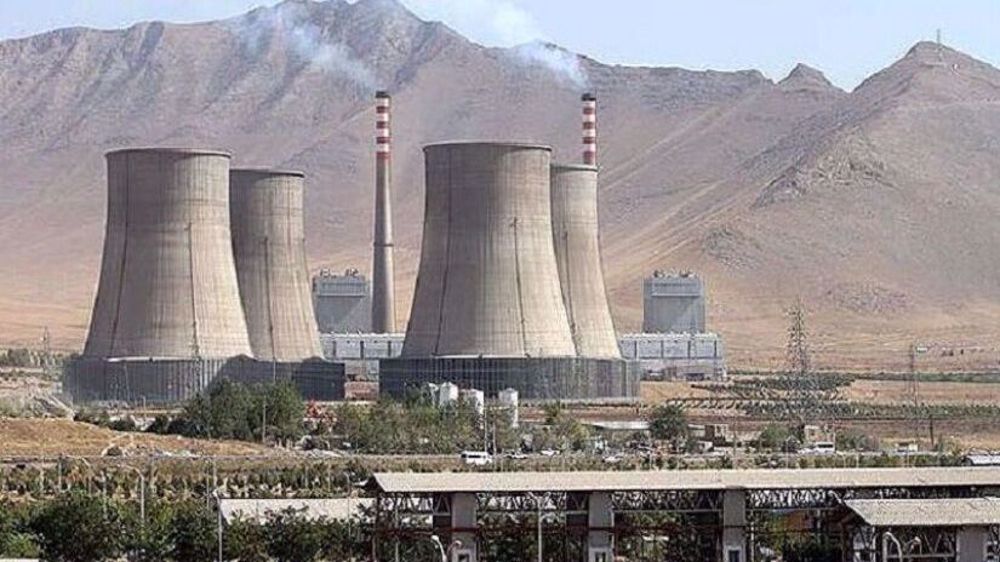Iran’s dash toward becoming regional gas hub
Iran and Turkmenistan on Wednesday signed an important energy agreement under which the two neighbors will expand gas swap cooperation.
The two countries also pledged to increase technical and engineering cooperation. This will bring significant economic benefits for both countries and serve as a model for the development of regional cooperation.
Iran sits on the world's second-largest natural gas reserves and is the world's third-largest producer of the fossil fuel, but rising domestic demand is curtailing its ability to export and the country faces natural gas shortages during the wintertime.
The agreement, which was concluded in the framework of promoting economic and strategic relations between the two countries, will boost Iran's capacity to meet domestic gas needs and re-export the surplus.
The finalization of the deal came during a high-profile visit by Turkmenistan’s National Leader Gurbanguly Berdimuhamedow to Tehran, shortly after the two sides inked a contract in July for the delivery of 10 billion cubic meters of Turkmen natural gas per year, which Iran will then ship to Iraq. Turkmenistan’s foreign ministry said at the time that the country planned to increase its gas supplies to Iran to 40 billion cubic meters a year.
Turkmenistan is already linked with the north and northeastern part of Iran via two trunklines, one with the annual capacity of 12.5 billion cubic meters of gas and the other with 8 billion cubic meters. Iranian companies will construct a new 125-kilometer pipeline between Iran and Turkmenistan to expand the Central Asian country's delivery capacity.
Bordered by Russia, Uzbekistan, Iran and the land-locked Caspian Sea, Turkmenistan, as one of the countries with large natural gas reserves in the world, is unable to directly ship liquefied natural gas (LNG) to world markets. The country is strengthening its cooperation with Iran, which has a geographical advantage for transit and energy transfer to other countries.
Wednesday's agreement was signed at a time when the global energy market is facing many fluctuations and the need to diversify energy sources is felt more than ever. Some important factors potentially making the agreement a success include diversification of energy sources, strengthening of transit infrastructure and regional cooperation.
It will reduce Iran's dependence on domestic gas resources, strengthen its export capacity, improve energy security, and deepen economic and political relations with Turkmenistan. It will also pave the way for Iran to stake out a role for itself as an energy hub in the region and become the basis for more cooperation in other economic fields between the two countries.
The signing of the gas agreement is an important step towards strengthening Iran's energy independence and increasing economic integration with the neighboring countries, which can have positive effects on regional stability and development.
The development of gas transmission infrastructure and the expansion of the pipeline network to neighboring countries will lead to regional convergence through building mutual trust and developing strategic relations with neighbors and cement peace and friendship.
However, there are challenges where Iran has to compete with other gas producing countries such as Russia and Qatar, which currently play an important role in global gas supply. Iran needs to attract foreign investment, acquire advanced technology and develop its production and export capacities in order to keep up with the market.
Sanctions can still be an obstacle to the development of Iran's gas industry and access to global markets. Success in this field depends on Iran's ability to overcome these obstacles.
In sum, while the gas agreement with Turkmenistan can bring Iran closer to the goal of becoming the gas hub of the region, achieving it requires strengthening regional cooperation, infrastructure development, and managing existing economic and political challenges.
Iran reports further drop in annual inflation rate in December
Israel indicts two settlers over suspected spying for Hezbollah
Iran: US airstrikes on Yemen war crimes, violation of international law
Yemeni armed forces down F-18 fighter jet, repel US-UK attack: Spokesman
Iran warns against US-Israeli plot to weaken Muslims, dominate region
VIDEO | Public uproar in US against Israeli regime
‘Ghost town’: 70% of Jabalia buildings destroyed by Israel
Mother’s Day: Sareh Javanmardi’s inspiring journey as Paralympic champion and mother










 This makes it easy to access the Press TV website
This makes it easy to access the Press TV website